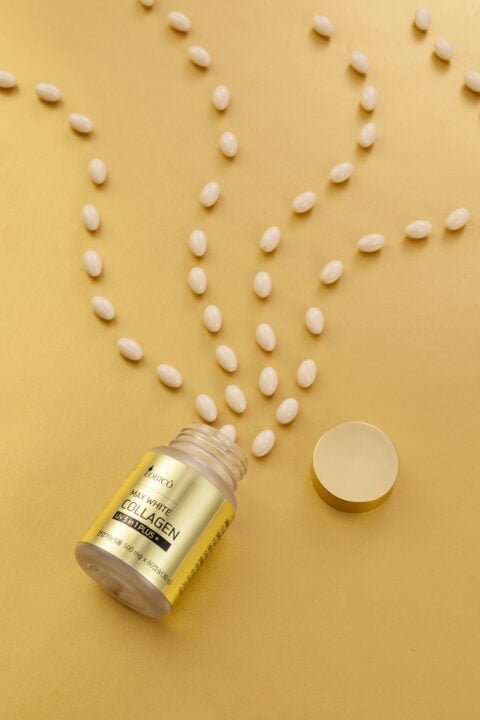As a mum and health provider, I’m interested in the best advice on topics like nut allergies. It seems like a confusing and misguided field of nutrition. Yet, it’s simpler than you might think.
In a nutshell, the scientific community has reached a consensus: Nuts should be included during pregnancy, during breastfeeding and while introducing solids, irrespective of allergy risk.
What causes nut allergies?
Many theories exist to explain the mechanisms behind allergy pathogenesis and the increase in prevalence. These include environmental changes, epigenetics and stress and lifestyle factors. Another under appreciated area of health is the microbiome and its role in infant immune function.
The truth is, it’s unclear how and why nut allergies occur. It is likely to be a combination of the above factors. of many factors. Despite this, nuts should still be included in a healthy diet, irrespective of yours or your family’s allergy status.
Exposure Via Breast Milk: The Protective Effects
The World Health Organisation currently recommends exclusive breastfeeding for the first 6 months and continued breastfeeding until 2 years of age. This includes during allergenic and solid food introduction.
Breastmilk has incredible immunological functions. It acts as the ‘perpetual gardener’ of your babies’ developing microbiome.
Key vitamins, anti-inflammatory nutrients and immune cells all feature in breastmilk. Research suggests these have a role in reducing the risk of allergic disorders.
When To Introduce Nuts Into My Baby’s Diet?
In 2016, the Australasian Society of Allergy and Clinical Immunology updated their guidelines for food allergy prevention. They recommend the introduction of solids at ‘around 6 months, but not before 4 months’ irrespective of any family history of allergies. Ideally, breastfeeding should continue throughout and beyond this age into toddlerhood.
Ways to introduce nuts to your baby:
- Small amounts of smooth peanut butter can be introduced, at around 6 months of age
- Try mixing a small amount (pea size) of peanut butter into your baby’s usual food (such as puree) or try peanut butter alone.
- Gradually increase the amount if your baby is not having any allergic reactions. For example ½ teaspoon the next time.
- Don’t rub the food on your baby’s skin. This may increase the risk of the baby developing an allergy to that food.
- Go slowly, introduce one allergenic food or nut at a time and observe your baby.
- Continue to breastfeed or formula feed throughout.
References
Allen, K. J., & Koplin, J. J. (2015). High consumption of peanuts or tree nuts by non-allergic mothers around the time of pregnancy reduces the risk of nut allergy in the child. Evidence-based nursing, 18(2), 45. https://doi.org/10.1136/eb-2014-101826
Australasian Society of Clinical Immunology and Allergy. (2021). Allergy Prevention, How to Introduce Solids. https://www.allergy.org.au/patients/allergy-prevention/ascia-how-to-introduce-solid-foods-to-babies
Comberiati, P., Costagliola, G., D’Elios, S., & Peroni, D. (2019). Prevention of Food Allergy: The Significance of Early Introduction. Medicina (Kaunas, Lithuania), 55(7), 323. https://doi.org/10.3390/medicina55070323
Ferraro, V., Zanconato, S., & Carraro, S. (2019). Timing of Food Introduction and the Risk of Food Allergy. Nutrients, 11(5), 1131. https://doi.org/10.3390/nu11051131
Fiocchi, A., Assa’ad, A., Bahna, S., Adverse Reactions to Foods Committee, & American College of Allergy, Asthma and Immunology (2006). Food allergy and the introduction of solid foods to infants: a consensus document. Adverse Reactions to Foods Committee, American College of Allergy, Asthma and Immunology. Annals of allergy, asthma & immunology : official publication of the American College of Allergy, Asthma, & Immunology, 97(1), 10–77. https://doi.org/10.1016/s1081-1206(10)61364-6
Frazier, A. L., Camargo, C. A., Jr, Malspeis, S., Willett, W. C., & Young, M. C. (2014). Prospective study of peripregnancy consumption of peanuts or tree nuts by mothers and the risk of peanut or tree nut allergy in their offspring. JAMA pediatrics, 168(2), 156–162. https://doi.org/10.1001/jamapediatrics.2013.4139
Gignac, F., Romaguera, D., Fernández-Barrés, S., Phillipat, C., Garcia Esteban, R., López-Vicente, M., Vioque, J., Fernández-Somoano, A., Tardón, A., Iñiguez, C., Lopez-Espinosa, M. J., García de la Hera, M., Amiano, P., Ibarluzea, J., Guxens, M., Sunyer, J., & Julvez, J. (2019). Maternal nut intake in pregnancy and child neuropsychological development up to 8 years old: a population-based cohort study in Spain. European journal of epidemiology, 34(7), 661–673. https://doi.org/10.1007/s10654-019-00521-6
Hicke-Roberts, A., Wennergren, G., & Hesselmar, B. (2020). Late introduction of solids into infants’ diets may increase the risk of food allergy development. BMC pediatrics, 20(1), 273. https://doi.org/10.1186/s12887-020-02158-x
Mustafa, S. S., Vadamalai, K., Bingemann, T., Mortezavi, M., Aranez, V., & Ramsey, A. (2020). Real-world tree nut consumption in peanut-allergic individuals. Annals of allergy, asthma & immunology : official publication of the American College of Allergy, Asthma, & Immunology, 124(3), 277–282. https://doi.org/10.1016/j.anai.2019.11.027






